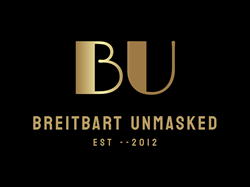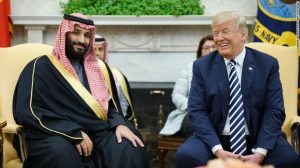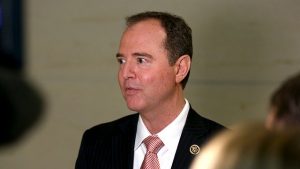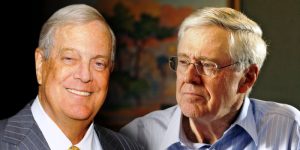It should not have been a surprise that GOP presidential frontrunner Ben Carson lacks a firm grasp of the complex situation in the Middle East. He’s a brain surgeon, after all, not a policy wonk, so his ability to handle questions about national security was always going to depend on the knowledge and skill of his advisers. This is why Carson’s head-scratching comments about a supposed Chinese presence in Syria during recent weeks had everyone wondering who exactly those advisers were, what they were actually telling him, and whether he was really listening.
Per the New York Times, it turns out the answers to those questions are as cringe-inducing as you expected.
Faced with increasing scrutiny about whether Mr. Carson, who leads in some Republican presidential polls, was capable of leading American foreign policy, two of his top advisers said in interviews that he had struggled to master the intricacies of the Middle East and national security and that intense tutoring was having little effect.
“Nobody has been able to sit down with him and have him get one iota of intelligent information about the Middle East,” said Duane R. Clarridge, a top adviser to Mr. Carson on terrorism and national security. He also said Mr. Carson needed weekly conference calls briefing him on foreign policy so “we can make him smart.”
Who is Duane Clarridge? That’s such a big, juicy question. “Dewey” Clarridge is a lifelong Republican who worked for the CIA during the golden years of the Cold War in Europe, becoming the agency’s Latin American chief in 1981 when President Ronald Reagan decided someone with zero Spanish language skills or regional experience needed to be in charge of America’s clandestine war against the Sandinista government in Nicaragua. One predictable result of Reagan’s reckless policy was the infamous Iran-contra funding scandal, which featured Clarridge in a starring role, as Charlie Pierce of Esquire remembers:
Clarridge testified extensively about his role in the operation, but steadfastly denied contemporaneous knowledge that the shipment contained weapons. Clarridge also testified at length about his efforts to support the contras, but denied soliciting support from third countries or even knowing about discussions of such efforts. In both instances, there was strong evidence that Clarridge’s testimony was false. On November 26, 1991, a federal Grand Jury indicted Clarridge on seven counts of perjury and false statements to congressional investigators and to the President’s Special Review Board (the Tower Commission) stemming from his testimony about his role in the November 1985 arms shipment to Iran.
Of course, President George H. W. Bush pardoned Clarridge and all his friends, whereupon the disgraced spook decided to make a fortune in the nebulous world of private intelligence, drawing criticism for relying on “unvetted and uncorroborated information from private sources,” according to one Pentagon spokesman. According to Clarridge, his contacts are doing most of the advisory work in the Carson campaign — which is not to say that their efforts are effective:
But the briefings do not always seem to sink in, Mr. Clarridge said. After Mr. Carson struggled on “Fox News Sunday” to say whom he would call first to form a coalition against the Islamic State, Mr. Clarridge called Mr. Williams in frustration. “We need to have a conference call once a week where his guys roll out the subjects they think will be out there, and we can make him smart,” Mr. Clarridge said he told Mr. Williams.
Mr. Williams, one of Mr. Carson’s closest friends, who does not have an official role in the campaign, also lamented the Fox News interview. “He’s been briefed on it so many times,” he said. “I guess he just froze.”
The Times reports that Carson’s only paid foreign policy adviser is retired general Robert Dees. An unapologetic advocate of using American arms to forcibly convert the world to Christianity, Dees leads the institute for Military Resilience at Liberty University, an evangelical institution founded by now-dead televangelist Jerry Falwell. Offering a much more positive picture of the Carson campaign to the Times than Clarridge, Dees says he regularly has “retired military officers, business leaders and ambassador-level type guys'” briefing the candidate, who has “an amazing intellect.” (The campaign promises to eventually tell us whether “ambassador-level type guys” is a reference to the insane Alan Keyes.)
Although the Ben Carson campaign is hitting back at the Times’s interview with Clarridge, it’s now clear that a Carson presidency would be a loop-tape of America’s worst foreign policy failures since World War II. His advice is coming from the most extreme and least-reliable sources, he’s only half-listening to them anyway, and it shows.














Ben Carson’s rebuttal to the (entirely justified) argument that he knows nothing about, well, anything is that he will surround himself with brilliant advisers.
I’m old enough to remember when the Republican Party was insisting there was no danger in electing George W Bush because he’d surround himself with brilliant advisers. That didn’t work out too well, as I recall.
But GWB’s advisers—even Douglas Feith, the one famously described by General Tommy Franks as “the dumbest fucking guy on the planet”—look like a policy Dream Team by comparison to the brain trust Mental Ben has surrounded himself with.
Of course, the same could be said for all the R candidates.
–alopecia
Ah, Douglas Feith. Few names make me shudder like his.
I know of no incident in American history where a President was called upon to perform surgery. Carson seems to be applying for a job for which he has no relevant experience or education, and is damn proud of it. Amazing stuff.